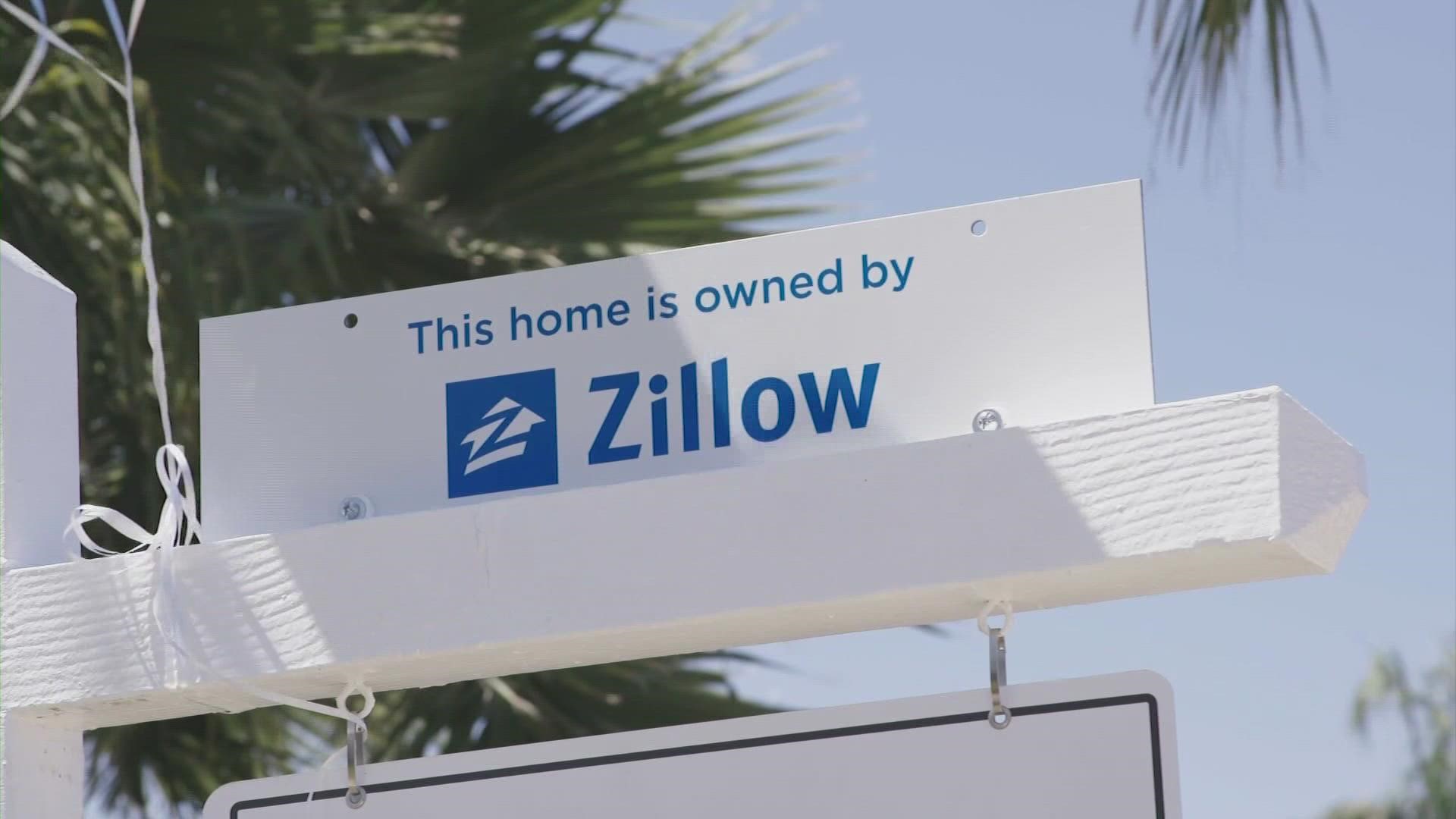SEATTLE — Zillow will shutter its home buying business and lay off 25% of its workforce over the next few quarters, the company announced Nov. 2.
Company CEO Rich Barton tweeted it is "a tough day at Zillow."
"We made the difficult, but necessary decision to wind down the Zillow Offers operations and lay off 25% of the workforce."
Approximately 2,000 employees will be laid off from the Seattle-based company. The company doesn't know the exact breakdown of the layoffs yet, but Seattle will "most likely not be affected," a company spokesperson told KING 5. In general, most of the layoffs will be spread across the country in areas where the program is operated. Zillow Offers is not operated in Washington.
Company leadership determined scaling up Zillow Offers was "too risky," according to a letter to shareholders. Additionally, the house-flipping business was "too volatile to our earnings and operations, provides too little opportunity for return on equity, and serves too narrow a portion of our customers."
Zillow took a $380 million adjusted loss from the home buying segment.
Zillow Offers was a home buying and selling service that aimed to bring the experience onto digital platform.
In the letter to shareholders, the global pandemic, temporary freezing of the housing market, and a supply and demand imbalance are cited as reasons for the difficulty Zillow Offers faced. The company was "unable to accurately forecast" home prices.
"Because of this price forecasting volatility, we have had to reconsider what the business might look like at a larger size," the letter reads. "We have offered sellers a fair market price from the start of Zillow Offers, while also being clear that the business would only become consistently profitable at scale. We have determined this large scale would require too much equity capital, create too much volatility in our earnings and balance sheet, and ultimately result in far lower return on equity than we imagined."

